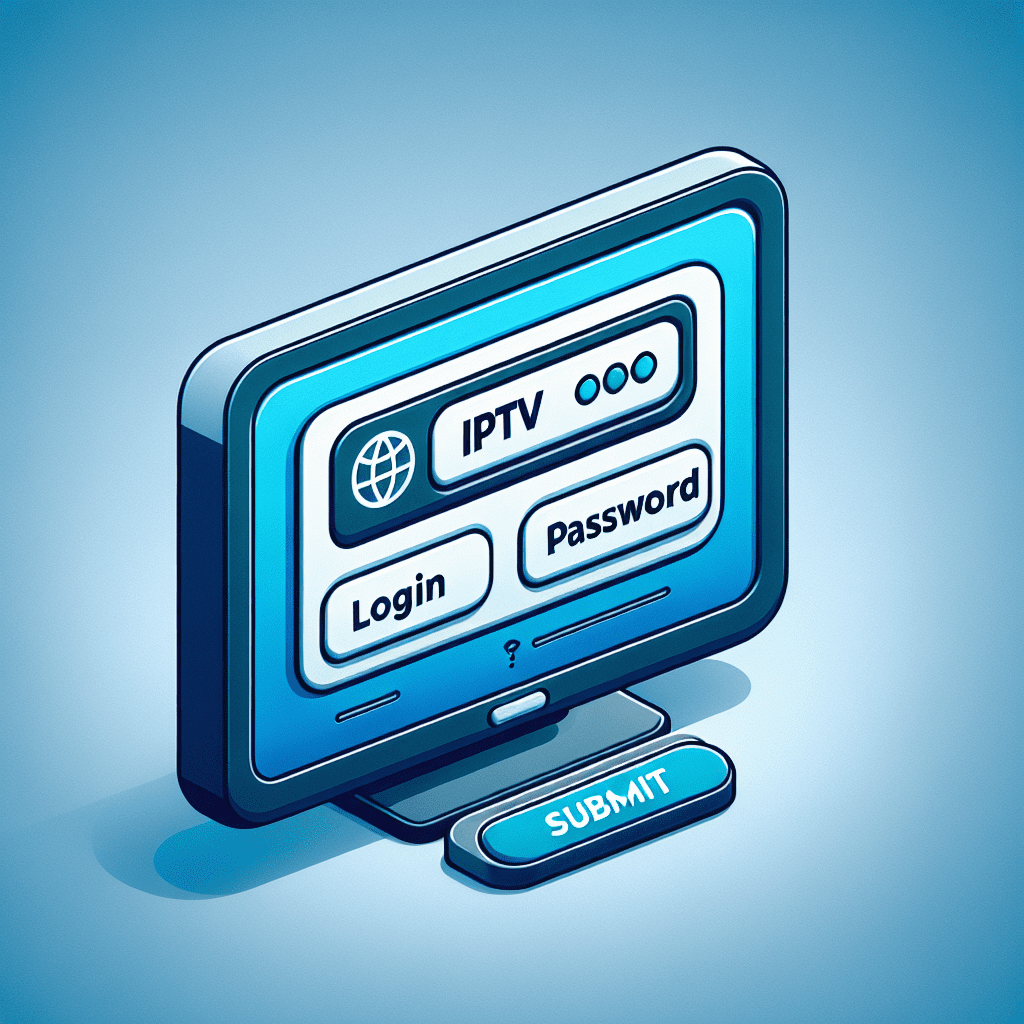In the realm of digital television, IPTV authentication login and password management are critical yet often overlooked aspects. The allure of on-demand content and a vast array of channels can quickly turn into frustration when access is denied due to authentication issues. The modern viewer does not just seek convenience; they demand seamless access secured by robust credentials. Ignoring these authentication protocols can lead to compromised accounts, unauthorized access, and an overall diminished viewing experience. This article delves deep into the intricacies of IPTV authentication, emphasizing the significance of secure login credentials and providing comprehensive strategies to manage them effectively.
Understanding IPTV Authentication: Login and Password Basics
IPTV, or Internet Protocol Television, relies on a precise authentication mechanism to ensure that only authorized users can access its content. When you subscribe to an IPTV service, you receive unique login credentials—typically a username and a password. These credentials act as your digital key, allowing you to unlock a vast library of channels and on-demand content. However, the underlying process involves more than just inputting your credentials; it’s a complex interaction between your device, the IPTV provider, and various servers that authenticate the session.
The authentication process typically begins when you enter your username and password into the IPTV app or device. This information is sent to the service provider’s server, which validates your credentials against its database. If the details match, the server grants access, allowing you to stream your desired content. Conversely, incorrect login details can lead to access denial, showcasing the importance of entering accurate information.
It’s essential to understand that IPTV authentication is not just about logging in. Various factors, such as device compatibility, network stability, and subscription status, can impact the login experience. Providers often implement additional layers of security, such as two-factor authentication (2FA), to protect user accounts. Keeping abreast of these methods can enhance your streaming experience while safeguarding your account against unauthorized access.
Importance of Secure Login Credentials for IPTV Services
Effective management of login credentials is paramount for any IPTV service user. Weak or easily guessed passwords can expose your account to potential hackers, leading to unauthorized access, content theft, and data breaches. The ramifications are significant; not only could your viewing experience be disrupted, but you may also incur financial loss if payment information is compromised. Therefore, creating strong, unique passwords is a fundamental step in securing your IPTV experience.
Furthermore, the importance of changing your passwords regularly cannot be overstated. Cybersecurity experts recommend updating your credentials at least every three to six months. This practice minimizes the risk of ongoing unauthorized access, especially if your login information has been exposed through data breaches or phishing attempts. By regularly refreshing your password, you fortify your account against evolving threats in the digital landscape.
Lastly, using a password manager can offer an additional layer of security. Password managers help generate complex passwords that are difficult to crack while securely storing them for easy retrieval. This tool can alleviate the stress of remembering multiple credentials while ensuring that your login credentials remain robust and secure. Invest time in understanding and adopting secure practices around your IPTV login credentials to ensure a seamless and safe viewing experience.
Step-by-Step Guide to IPTV Login and Password Management
Managing your IPTV login and password effectively involves a few straightforward steps. First, begin by creating a strong password combining uppercase and lowercase letters, numbers, and special characters. Aim for at least 12 characters to enhance security. Once created, ensure that your password is unique to your IPTV account—refrain from using the same password across multiple platforms, as this increases vulnerability.
Next, consider implementing two-factor authentication wherever possible. This additional layer of security requires a second form of verification—such as a code sent to your phone—before granting access. Enabling 2FA significantly reduces the chances of unauthorized access, even if someone manages to obtain your login credentials.
Lastly, regularly audit your login sessions. Most IPTV providers offer the ability to view active sessions or devices connected to your account. By reviewing this information, you can identify any unauthorized access. If you notice discrepancies, immediately change your password and revoke access to unknown devices. This proactive approach to password management can help you maintain control over your IPTV account and enjoy a worry-free viewing experience.
Troubleshooting Common IPTV Authentication Issues and Solutions
Despite best efforts in managing your IPTV login and password, you may encounter authentication issues. One common problem is forgotten passwords. In such cases, most IPTV providers offer a "Forgot Password" feature, allowing you to reset your password via your registered email or phone number. Always ensure that your recovery options are up to date to facilitate swift recovery of your account.
Another frequent issue involves incorrect login attempts due to typos or outdated credentials. Double-check that you are entering the correct username and password combination, paying attention to case sensitivity. If you have recently changed your password, ensure you are using the most current one. Additionally, using a different device or clearing your app cache can sometimes resolve login issues stemming from application glitches.
If problems persist, consider contacting your IPTV provider’s customer support. They can assist in identifying whether the issue is on their end or if there are broader service outages affecting authentication. Maintaining open lines of communication with your provider can lead to faster resolutions and provide insights into any ongoing security concerns that may impact your account.
Understanding the intricacies of IPTV authentication, particularly regarding login and password management, is vital for a secure and enjoyable viewing experience. By implementing strong password practices, utilizing two-factor authentication, and maintaining regular account audits, you significantly enhance your account’s security. Remember, the digital landscape is ever-evolving, and staying ahead of potential threats is crucial. Embrace these strategies, and transform your IPTV experience into one that is not only seamless but also secure. As you navigate through your IPTV journey, remember to keep your credentials close and your access secure.
can you donate blood after a tattoocan you die from pancreatitiswindows 10 auto login registryRelevant LinkRelevant LinkRelevant LinkExploring 2024’s Innovations in Remote Patient Monitoring in CanadaEnhancing Cybersecurity Protocols in Canada’s 2024 Healthcare SystemExploring Blockchain Applications in Canadian Healthcare 2024Relevant LinkRelevant LinkRelevant LinkManaging Degenerative Disc Disease: The Role of YogaSubmitting Your Web Wrapped Curio: A Step-by-Step GuideStrategic Hiding Spots in Life is Strange Pool SceneRelevant LinkRelevant LinkRelevant LinkExploring the Impact of 40,000 Daily Steps on Weight LossEffective Yoga Poses for Optimal Weight Loss and WellnessComprehensive Reviews of Happy Mammoth Weight Loss ProgramRelevant LinkRelevant LinkRelevant Link




